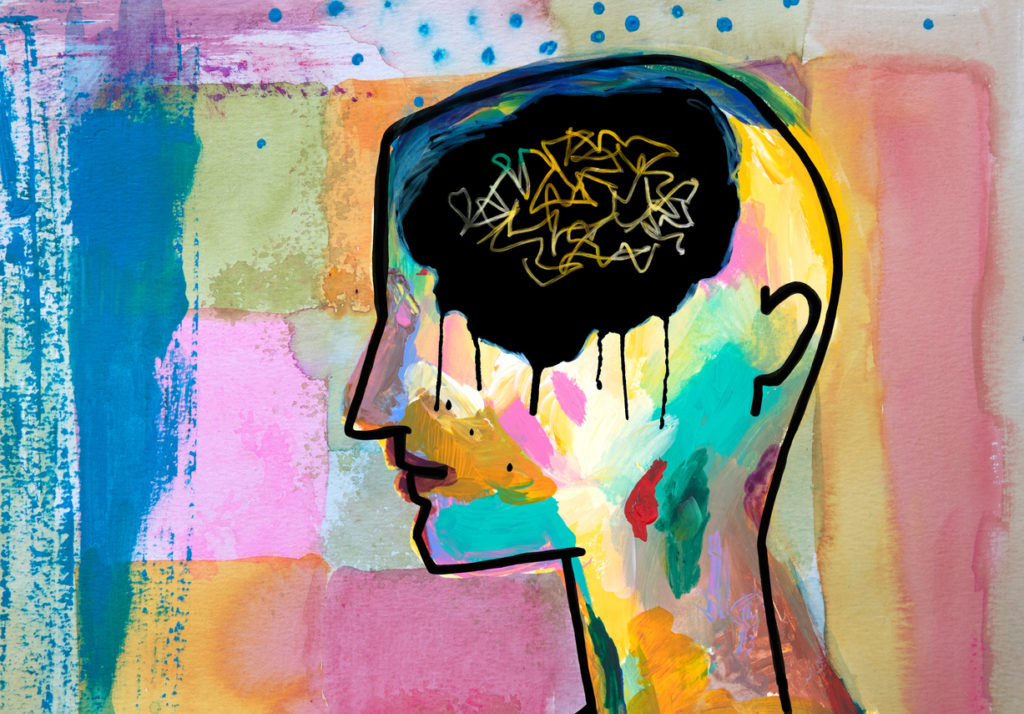Transcript
Hello, I’m Jan Resnick, I work as a senior psychotherapist and supervisor based in Perth at the Claremont Medical Centre. My practice there is called Amygdala Consulting. Before that, I was Director of Training of The Churchill Clinic where I ran psychotherapy trainings for 18 years and was also the Founding President of The Psychotherapists & Counsellors Association of WA. Currently, I serve as an Advisory Board Member of ASCA (Adults Surviving Child Abuse) and since 2011 I’ve been an Editorial Board member of Virtual Medical Centre and Virtual Psychiatry Centre.
What is psychotherapy?
Generally, the term psychotherapy can refer to any type of formal, professional counselling process where the focus is usually upon the patient’s personal issues, mental disorders or emotional suffering. It is a difficult term to define because there are over 400 different types of psychotherapy practices. The dominant practice is psychoanalytical or psychodynamic and that is what I am referring to here. Psychoanalytic Psychotherapy has come a very long way since Freud created it over 100 years ago.
As a contemporary practice, this type of psychotherapy creates a safe, non-judgemental environment and makes use of the professional relationship to address issues in depth. Psychotherapy works through reflection, detailed discussion, paying attention to language and developing communication skills, interpretation and the skilful navigation of emotional suffering. Psychotherapy cultivates understanding of the meaning of our experience of the world, how we act and what happens to us and how this leads to painful problems. Psychotherapy is not only about explaining our experience, however, it is also a personal development program that builds our capacities to deal with the difficulties in our lives, adjust to changes, develop a more authentic sense of self, create better relationships, and feel well.
How does psychotherapy differ from psychology and psychiatry?
To become a psychiatrist, you become a medical doctor first and then undertake specialist training in psychiatry. That training includes some limited training in both psychology and psychotherapy. Of the many different types of mental health professionals, only doctors and psychiatrists can prescribe medications.
Psychologists are university-trained, and the term psychology usually refers to Cognitive Behavioural Therapy (CBT). Psychology is based on research and research determines general trends or ways that people are the same. Therefore, psychology is a one-size-fits-all method that aims to change the way we think and behave.
The training for Psychotherapy is different and the practice operates in a different way. One difference is that psychotherapy trainees are required to have therapy for themselves. This is essential for working with people with mental/emotional issues to be safe and effective. Psychotherapy practice is based on individual difference and focusses on each person’s unique way of experiencing their world and themselves in it. We pay particular attention to feelings and to each patient’s history and how that affects their present situation. We also focus upon the dynamics of interpersonal relationships, on family of origin experiences and on recurring patterns. Psychoanalytic Psychotherapy makes use of the professional relationship that is known to be a primary agent of healing and of change.
Book your health appointments online
Find and instantly book your next health appointment with Healthengine
What is depression? What are the signs and symptoms?
Depression manifests differently for different people but it must be one of the worst feelings there is. Depression is characterized by feeling helpless, hopeless, futile, bleak toward the present and future, numb, immobilized, it often feels very dark, oppressive, there can be self-pity, despair and a generally negative feeling and outlook. It can be hard to get out of bed in the morning or into first gear to do anything; we may also feel like “what’s the point?” It is a most horrible mental state and can be very hard to shake, especially once entrenched.
How is it diagnosed?
The need to diagnose is more important for psychiatry and practices that have to answer to insurance companies or that follow the traditional medical model where diagnosis determines treatment. As psychotherapy is more concerned with experience, the focus is on how a patient feels and people usually know when they are depressed. I don’t use scales or questionnaires because they don’t take into account essential variables, personal differences or properly consider how the way we feel changes over time. It is more personal to ask questions and discuss issues during consultations. Patients may well be depressed one day and not the next or depression may set in for years. So, psychotherapy works with what is happening at the time.
How can psychotherapy help in the management and treatment of depression?
While people’s experience of depression varies, there are some consistent themes. Depression is often primarily about loss, and a need to grieve a loss, come to terms with it and adjust. It can also be about anger that is turned against oneself. I also find that depression is often a consequence of disappointment or more specifically, of disillusionment. For example, a person has always believed they will be rich or recognized for their work, or marry Prince Charming or become a famous actor, or rock star. One day they realize that their life is not turning out that way, possibly quite a long way from that dream – and depression follows. So, a loss can be the loss of a hope or a dream or a belief that we were attached to, or it can be a more tangible loss – for example, when I first came to Australia in 1990 some of my first patients had lost their farms, substantial properties that had been in the family for generations due to debt and high interest rates. And this was devastatingly depressing.
Psychotherapy helps people work through the feelings, come to terms with what has happened or hasn’t happened and adjust to life as it is. Psychotherapy can be long-term and go into greater depth and detail than other practices.
It is very important to understand that to blame depression on a bio-chemical imbalance in the brain and only treat it with meds is to miss the underlying reasons for depression, or the underlying psychology that leaves a person susceptible to depression. If that remains untreated then patients will be at risk of depression recurring down the track. And psychotherapy has been shown by controlled studies to be the most effective method for treating depression, for reducing its severity, its duration and its likelihood of recurring. The depiction below is taken from Jonathan Schedler’s article Getting to Know Me – Studies show powerful benefits of Psychodynamic Psychotherapy as it appeared in Scientific American November/December issue, 2010. It shows that psychotherapy had a better measure of treatment benefit than both CBT psychology and anti-depressant medications.

Of course, anti-depressant medication can be life-saving and sometimes is essential for depressed patients. Some people do very well for the benefit of this class of meds and others do not. There are important questions that vary from one patient to the next as to the timeframe for meds or whether they are needed at all. Many patients feel somewhat emotionally removed and feel their sexuality dampened and their libido reduced because of meds. Whatever degree of depression, psychotherapy can be used in conjunction with medication and this is a common approach.
My Top Three Tips for Depression
- In many ways, depression grows out of a view that the present is adverse and the future cannot be better. It may last a while but recognizing that the future could be better, even if it doesn’t feel like it just now, does help depression to lift.
- Depression can be used as an opportunity to re-evaluate your values, take stock of how you got into this position, understand what can be learned and consider what changes need to be made. Taking responsibility in the fullest possible sense for how you are, can help to point in a different direction that, with effort, could improve your position.
- One of the best things you can do for depression is to get physical. Go to the gym, swim, run, cycle, whack a tennis ball, shoot hoops, take it out on a punching bag or dance! Of course, I understand that being depressed means you don’t feel like it. When depression is really bad, it feels paralysing and there is zero motivation. I get this. But these things go in cycles. The less you do, the less you feel like doing. If you can get yourself going physically, then there are many bio-chemical and psychological reasons why this helps to feel better. Depression is a cycle that needs to be broken.
Lastly, My Take Home Message
My Take Home Message is that help is possible. I do psychotherapy because I believe it is the best approach to deal with depression and most forms of mental disorder and emotional pain. Therapy is work and it is work worth doing. After nearly 40 years of practice, I have seen many people improve by working through their depression in therapy.
Many patients have either been completely cured of depression or find that it happens less often or felt less intensely for the benefit of psychotherapy, especially when it has been undertaken over some time.
Thank you for watching.
Kindly written and reviewed by Jan Resnick, PhD (Psychology) Senior Psychotherapist and Supervisor at Amygdala Consulting (Claremont), Advisory Board Member of ASCA (Adults Surviving Child Abuse, Sydney), Editorial Advisory Board Member of Psychotherapy in Australia, and of Virtual Medical Centre & Virtual Psychiatry Centre.
More information
 |
For more information on the risk factors, symptoms and treatment of depression, see Depression |
Useful resource
| The MindSpot Clinic is a free telephone and online service for Australian adults troubled by symptoms of anxiety or depression. The service is run by a team of health professionals and provides free Online Screening Assessments, free Treatment Courses and can assist in finding local services that can help. To speak to one of the team call 1800 614 434 between 8am -8pm AEST Monday to Friday and 8am – 6pm AEST on Saturday or visit MindSpot Clinic. |
All content and media on the HealthEngine Blog is created and published online for informational purposes only. It is not intended to be a substitute for professional medical advice and should not be relied on as health or personal advice. Always seek the guidance of your doctor or other qualified health professional with any questions you may have regarding your health or a medical condition. Never disregard the advice of a medical professional, or delay in seeking it because of something you have read on this Website. If you think you may have a medical emergency, call your doctor, go to the nearest hospital emergency department, or call the emergency services immediately.







